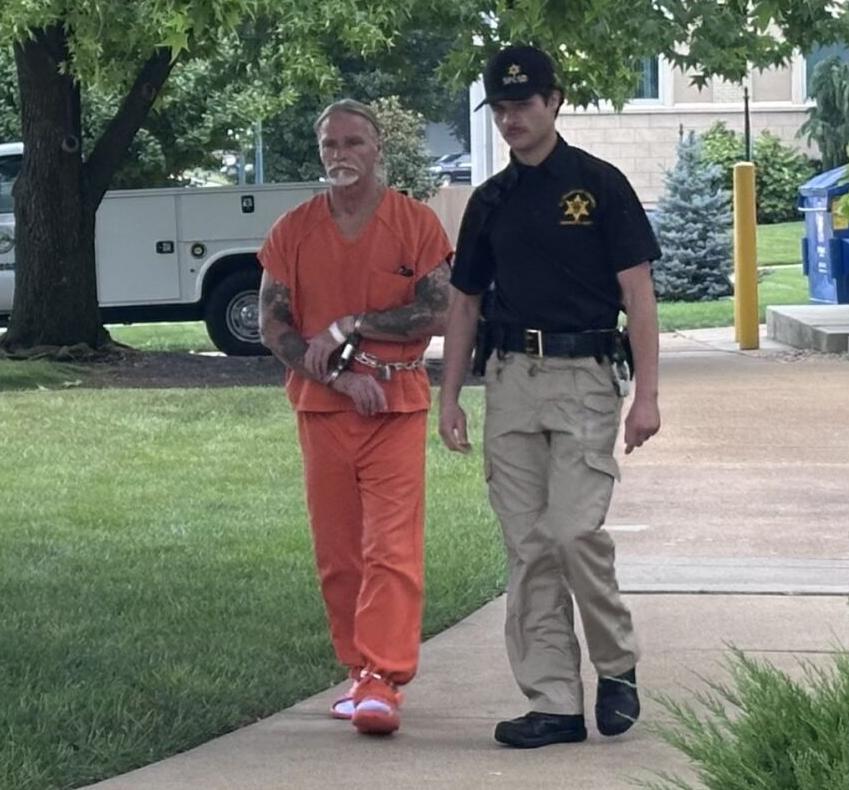FARMINGTON, Mo. — Innocence matters.
Those two simple words were at the heart of a closing argument Thursday by ӣ����Ƶ attorney Elizabeth Ramsey. It came after a four-day hearing in which she sought to overturn the murder conviction of Rodney Carr, who was sentenced to life in prison for the death of Moberly corrections officer Tom Jackson during a 1983 riot.
It’s hard to imagine many people disagreeing with a fundamental building block of the American justice system: innocent people should not be confined behind bars.
But that was the argument made last week by the office of Attorney General Andrew Bailey, which is seeking to keep Carr in prison. Even if St. Francois County Circuit Judge Patrick King ends up believing in Carr’s innocence, the judge still can’t release him, argued Assistant Attorney General Michael Spillane.
People are also reading…
“There is no freestanding innocence in Missouri,” Spillane said in court.
Spillane was referring to the case of another man named Rodney. In 2016, the Missouri Court of Appeals ruled that it couldn’t even consider the evidence of Rodney Lincoln’s innocence. It pointed to a decision by the state Supreme Court that makes it much more difficult to argue innocence in cases not involving the death penalty. Innocence, the court essentially said, doesn’t necessarily matter in non-death penalty cases.
“It’s hard to wrap your brain around, but as it turns out innocence is not a good enough reason to release a prisoner in Missouri,” said University of Missouri Kansas City law professor Sean O’Brien .
O’Brien was one of Lincoln’s attorneys, and he was also one of the lawyers representing Carr last week.

Rodney Carr walks with a St. Francis County Sheriff’s deputy to the county jail on Thursday. Carr attended a court hearing this week in which he is seeking to overturn his murder conviction from a 1983 prison riot.
Since 2016, various attorneys have unsuccesfully tried to get cases before the Missouri Supreme Court in hopes of reversing the position that “freestanding innocence” only matters in death row cases. Somebody like Carr, serving a life sentence, has to create a legal “gateway” to an innocence claim by first arguing prosecutors committed constitutional violations.
Take the case of Christopher Dunn. In 2020, a judge determined that Dunn, trying to overturn his murder conviction, met the standard of “actual innocence.” But because Dunn wasn’t on death row, the judge wouldn’t free him. Dunn needed a local prosecutor to file a motion to overturn the conviction to get out of prison.
In Lincoln’s case, the evidence of innocence was so overwhelming that Gov. Eric Greitens eventually commuted his sentence.
Ironically, that process — seeking gubernatorial clemency — plays a significant role in how Carr’s innocence case made its way to court. In 2019, Ramsey and her father, Robert, were working on a petition for a pardon of Carr to submit to the governor’s office. Robert Ramsey knew from past experience that such a petition wouldn’t be considered unless the prosecutor in the original case — Tim Finnical — didn’t oppose it. Robert Ramsey called Finnical to ask about the case.
“I was pretty floored when he told me what he did,” the elder Ramsey told Judge King on Thursday.
Finnical signed a letter that said Carr did not stab Jackson, despite the fact Finnical had made the opposite argument in court.
It’s damning evidence. But because of the Lincoln precedent, the judge will also have to find that Finnical made constitutional violations in Carr’s original trial. That’s where Carr’s pair of cut-off denim jean shorts come in. Carr says that’s what he was wearing the night of the riot. The Moberly prison wasn’t air conditioned in 1983, so inmates were allowed to wear shorts and a T-shirt from home on hot days.
The shorts were seized by the state after the riot, but they weren’t included on an evidence inventory list presented to Carr’s defense team. Corrections officers who testified at the original trial said Carr was wearing gray prison pants. Robert Driscoll, who later told multiple people that he was the man who stabbed Jackson, was wearing gray prison pants that day. Driscoll has since died. The third man convicted in Jackson’s murder, Roy Roberts, was put to death by the state in 1999.
Carr’s jean shorts were later tested and had no blood or DNA that would connect him to Jackson’s murder. Presented as evidence, they likely would have corroborated his testimony and diminished the veracity of the guards who testified against him. The guards who testified against Carr died long ago.
At the hearing last week, Ramsey presented an affidavit from a former guard who says those who testified in post-riot cases were told what to say by their bosses.
On Thursday, Ramsey finished her case by calling Carr to the stand.
“Did you have a knife that night?” she asked.
No, ma’am.
“Did you stab any guards?”
No.
“I’ve lost a lot,” Carr told Judge King. “It’s taken everything from me. Make it right.”
That was Ramsey’s plea, too, in a case that was nearly 40 years in the making. Her client is innocent, she said, and that should count for more than empty bromides.
“Innocence matters,” Ramsey said. “Rodney Carr matters.”
ӣ����Ƶ metro columnist Tony Messenger thanks his readers and explains how to get in contact with him.












